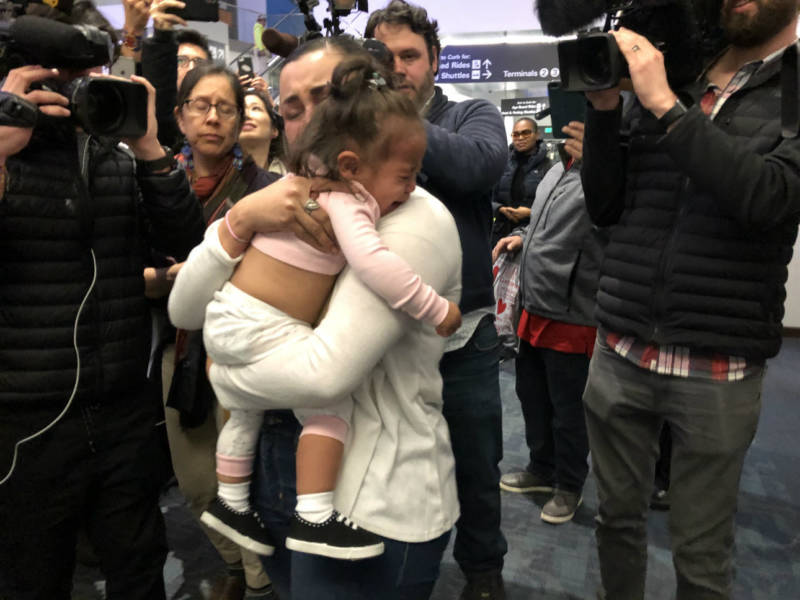“We think many if not most [of the children] are still without their parents,” said Gelernt. “We suspect, from what we’ve learned so far, that the majority of parents were deported without their children.”
This group of 1,556 is in addition to 2,814 separated children who were in federal custody at the time of Sabraw's June 2018 injunction and were previously identified in the ACLU’s class action lawsuit, Ms. L. v. U.S. Immigration and Customs Enforcement.
As a result of the judge's order, the majority of those children were reunited with their parents. However, more than 600 were released to other relatives or sponsors. Two dozen children still remain in government-run shelters.
A third group of children, identified earlier this year, had been taken from their parents after Judge Sabraw blocked family separations. His injunction included a provision that allows Homeland Security officials to separate parents from their children if the parents are considered "unfit" or "a danger to child."
Officials say they do that only rarely. As of this week, Gelernt said they had removed 1,090 children from their parents for such reasons, and every month the government reports additional separations from "unfit" parents.
ACLU attorneys say the government has taken children from their parents based on minor criminal convictions and unsubstantiated allegations of wrongdoing. They have asked the judge to reassess the original injunction and provide tighter guidelines for when children can be taken away from parents with a criminal history. Sabraw is considering that motion, and has ordered both parties to return to court on Nov. 8.
